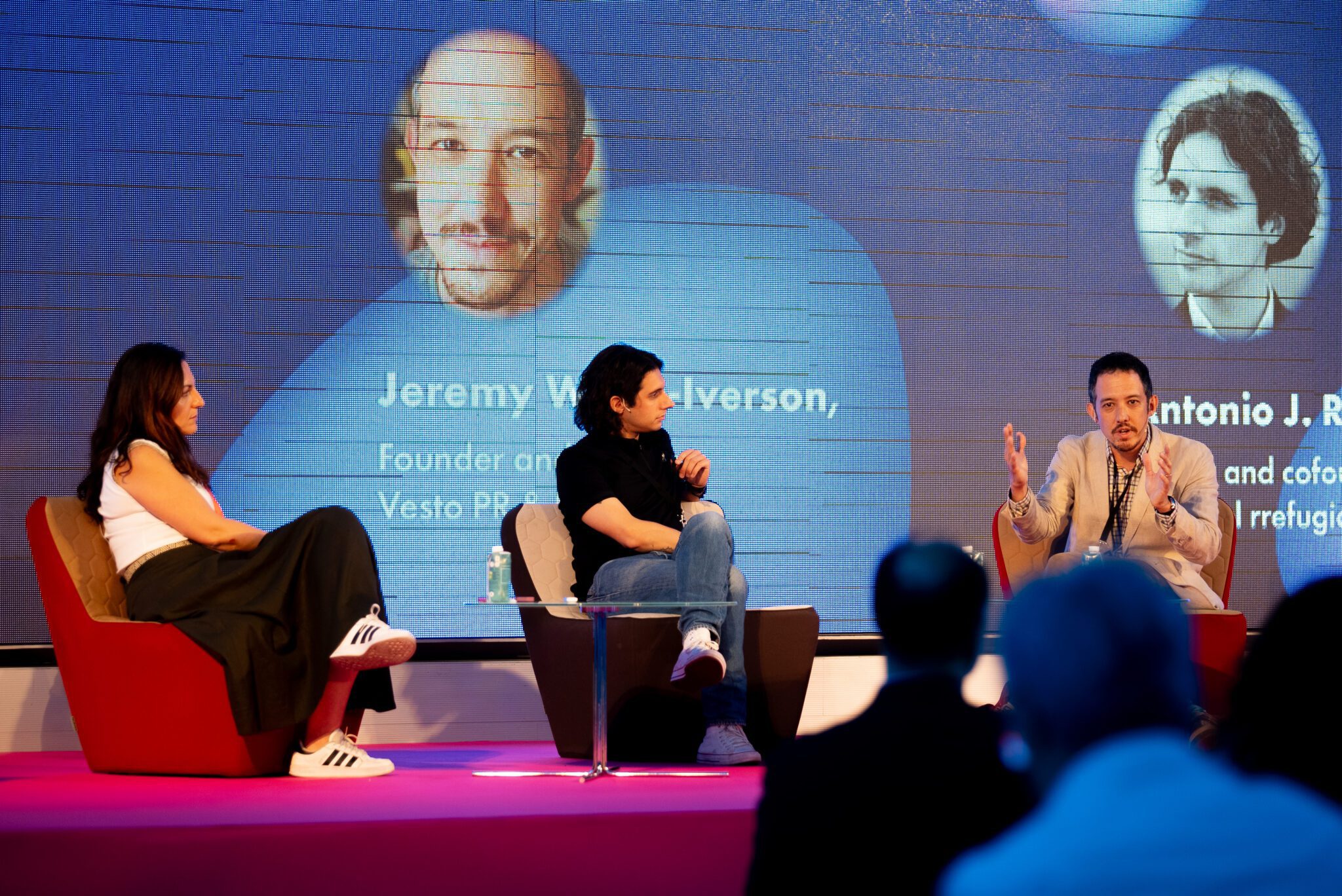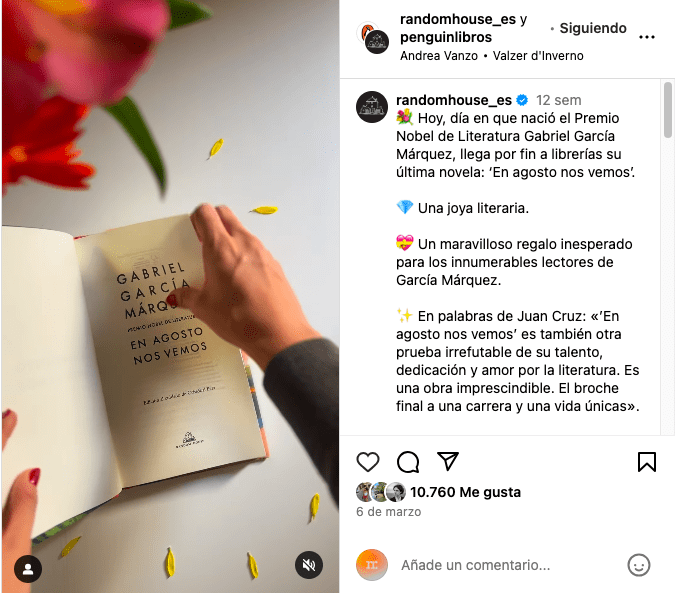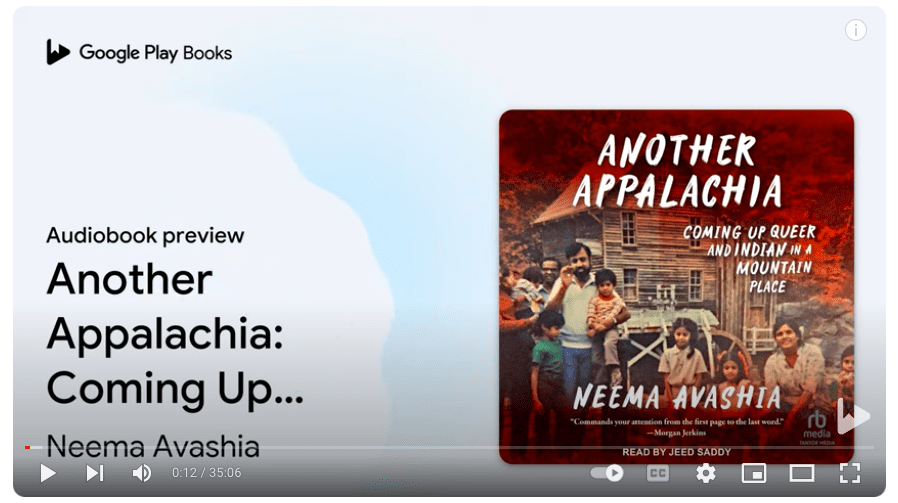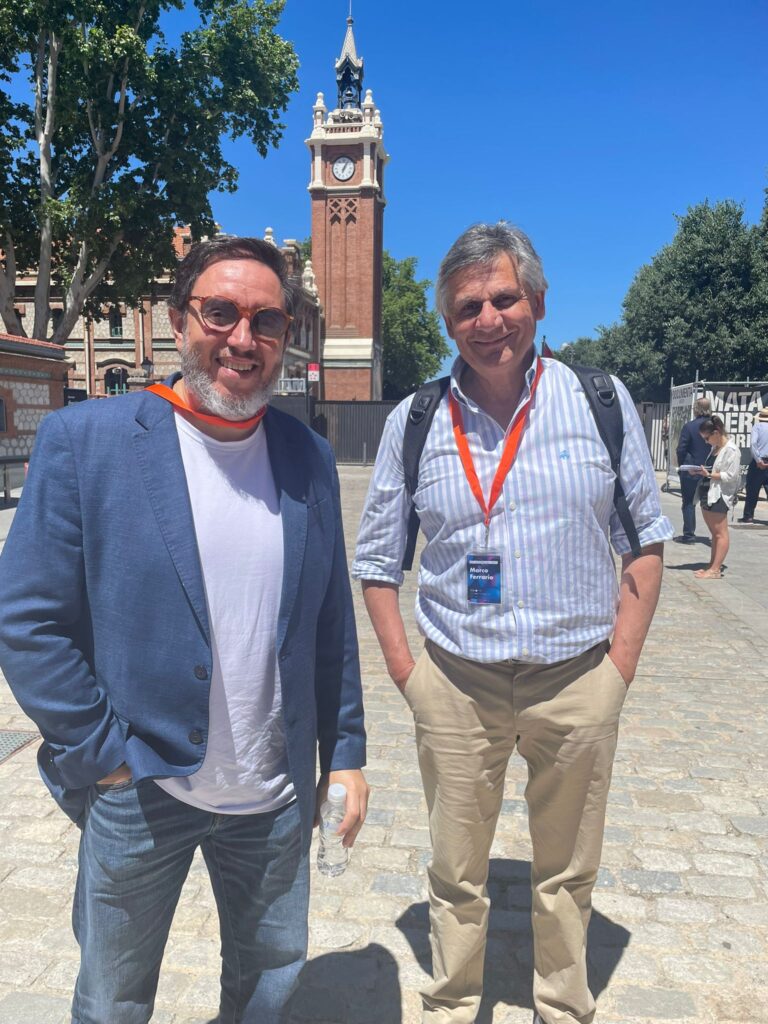
On May 31, I spoke on a panel for Readmagine, a conference on publishing organized annually in Madrid since 2013, by the Germán Sánchez Ruipérez Foundation. The conference brought together dozens of publishing veterans in all aspects of the industry from around the world, including former executives Madeline McIntosh and Richard Charkin, and book fair directors Juergen Boos and Eva Orue, along with the representation of publishing workers from adult and children’s publishing, data analysis, distribution, marketing, and much more. The full program for the conference can be found here.
Bookwire, which curated the conference’s third day, when I took part and which I’ll write about here, is a digital distributor of ebooks and audiobooks. Founded in 2010 by Jens Klingelhöfer, who is the CEO, the company has a presence around the world, including an office in Barcelona led by Mariana Fegéd, whose team invited me to participate.
The three panels were fascinating and worked well together, bringing together publishers from Spain, Italy, France (along with my representation of the United States), and in three hours covered significant ground, on both the macro and micro level, in raising questions, sharing strategies and insights, offering possible solutions, and also looking at what might be ahead in our industry in terms of how readers find books, and what publishers are in a position to do to help make this connection.
Here are four points the conversations got me thinking about:
1) Literary criticism to influencer. For the opening panel “New audiences and where to find them,” I spoke with Bookwire’s Mariana Fegéd and Antonio J. Rodríguez, author of El Dios celoso and co-director of the Barcelona-based creative agency rrefugio., which has partnered with many publishers and cultural organizations in the city. Antonio made a direct line between literary critics and online influencer, in terms of readers, first and foremost, eager to pass their enthusiasm for books to other readers. We are still learning and hear each day about TikTok success stories, instances of readers passionately evangelizing for a book by selfie video, which leads to extraordinary sales. There is no question the traditional review remains important, as far as an in-depth engagement into an author’s text, and perhaps more so for a different type of book than one that might succeed in the right TikTok context. But as my friend and colleague Derek Krissoff – who writes the excellent Substack newsletter Book Work – recently said to me, the appearance of a review can no longer be considered an end in and of itself: considering the difficulties faced by arts sections (due presumably, in part, to lack of traffic), the publishing teams (authors, publishers, agents) must have a role in partnering to support and amplify reviews when their publications are featured, especially if traditional advertising to support these outlets is considered to be no longer viable.
 (An Instagram reel produced by rrefugio for the March 2024 publication of Gabriel García Márquez’s En agosto nos vemos.)
(An Instagram reel produced by rrefugio for the March 2024 publication of Gabriel García Márquez’s En agosto nos vemos.)
2) Role of AI in publishing. I regret missing the first two days of the conference which discussed this topic in more depth, but important points on AI were made in the second panel “Innovation through content and multiple formats for multiple audiences,” featuring Raúl Pérez (Planeta, Spain), Stephanie Simonin (Bayard, France), and Alessandro Magno (Feltrinelli, Italy), in a conversation moderated by Marco Ferrario from Bookwire Italy. When Marco asked if AI could provide the content for future publications, Stephanie said this was not priority at Bayard where the editors continue to be deluged with submissions. Rather, AI can be used as a tool to assist with the more time-consuming tasks, Stephanie suggested, such as checking an audio file, or automatically re-sizing images for marketing collateral. While there are authors openly experimenting with AI, Alessandro suggested authors could also be using AI without the knowledge of publishers, an idea I had not considered, and potentially problematic, given the developing rules regarding copyright and AI. Raúl said that some authors had approached his team at Planeta with an AI generated version of their voice to use for audio books, preferring the publisher use that, rather than the time-consuming work of recording the book themselves. As I raised during the closing remarks, given that AI is taught and powered by the language of thousands of individual creators. relying on this for the content of books strikes many as problematic and an area where publishers must tread lightly.
3) Continued growth of audio books. In its role as a digital distributor, Bookwire works with publisher clients to produce audio books, as well as bring them to market. Certainly, there has been significant growth in this area and potential for more, as many of the leading retailers and subscription services offer a wide catalog of books to their customers. I mentioned during my conversation with Antonio and Mariana that authors with whom I work increasingly hope and expect there to be an audio edition to accompany their print book, much in the same way that electronic editions are now taken for granted. More resources are required to produce the additional format, and the challenge will be how the tools can be made available to more publishers, including smaller indies. It is very possible the AI tools that Raúl Perez mentioned could save important time and resources to allow more books to be transferred to audio, but as I also mentioned there are many authors who still want to read their own books, and listeners who enjoy hearing the authors’ voice as well.

(Neema Avashia’s Another Appalachia, published by West Virginia University Press, and available as an audiobook from Tantor Audio, narrated by Jeed Saddy.)
4) Publisher’s efforts to forge connections. In the third panel, Rafa Luna (Anagrama, Spain), Danaé Tourrand-Viciana (Leduc, France), and Pietro Biancardi (Iperborea, Italy) – three mid-sized publishers – discussed with Mariana Féged how their teams have worked to develop and enhance their marketing efforts in specific ways. Rafa explained that Anagrama now has a team of four in his marketing department, which works closely with authors to produce videos and also a podcast, Tema Libre, which pairs two authors on the list to talk to each other on themes in their work.
(Anagrama novelists Carlos Fonseca (Austral) and Xita Rubert (Mis días con los Kopp) in conversation for the Tema Libre podcast. The third season of the podcast will be released in September.)
In terms presentation and quality, the material feels very much like a continuation of Anagrama’s iconic print books, and an example of the type of work that publishers must do to accompany publicists’ efforts to secure earned media for their new releases. Pietro Biancardi described the interesting evolution of Iperborea, which began in 1987 to publish Northern European authors in Italian translation and has since grown, with a continued focus on translation. Along with the book publishing, Iperborea also releases a magazine, The Passenger (available in an English coedition with Europa) and organizes a festival I Boreali, dedicated to Nordic cultures, which draws thousands each other.
Despite the serious challenges that continue to face authors and publishers, I was encouraged by the conference, by learning about what publishers are earnestly trying to do, thinking about more ways for collaboration between the many organizations and entities that wish to see a thriving literary culture, and also how publishing and marketing can support the important work of the distributor to bring the readers to the work they make available. As Jens Klingelhöfer quipped in his introduction, “Many of my predictions have been wrong. I predicted by 2015 the book business would be 50% digital.” With any luck, the next decade will bring more positive developments for different sectors of the business around the world, despite the often gloomy forecasts.

Marcelo Gioia (Bookwire Brazil) and Marco Ferrario (Bookwire Italy) outside the Casa del Lector in the Matadero after the conference.
